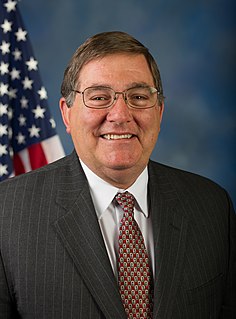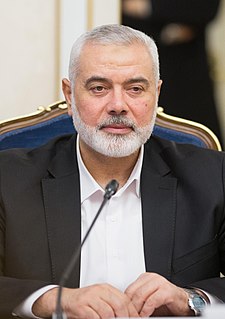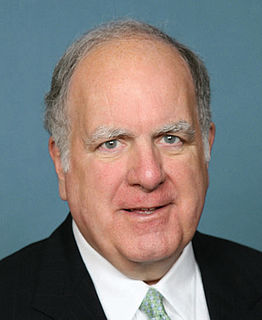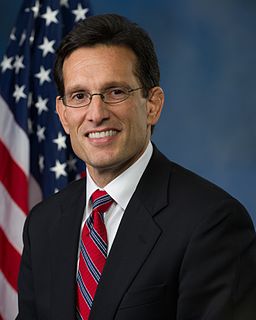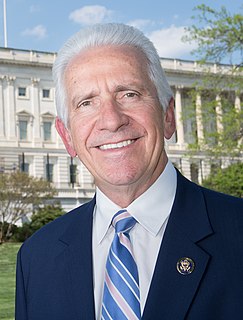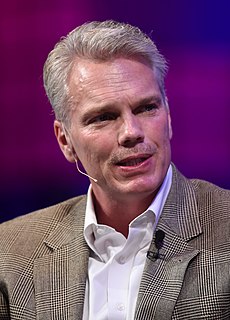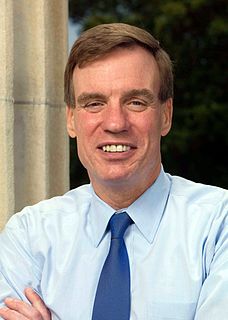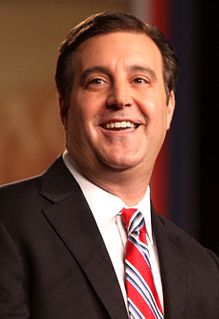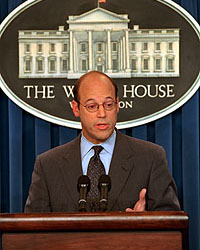Top 1200 Fiscal Policy Quotes & Sayings - Page 11
Explore popular Fiscal Policy quotes.
Last updated on December 19, 2024.
We [American nation] can now, by virtue of new technology, actually get all the energy we need in North America without having to go to the - the Arabs or the Venezuelans or anyone else. That's why my policy starts with a very robust policy to get all that energy in North America, become energy-secure.
If a theology student in lowa should get up at a PTA luncheon in Sioux City and attack the President's military policy, my guess is that you would probably find it reported somewhere the next morning in the New York Times. But when 300 Congressmen endorse the President's policy, the next morning it is apparently not considered news fit to print.
The people have said yes to change and reform. The majority of the Palestinians have said yes to the slogan, 'Islam is the solution.' The people also voted in favor of our policy of resistance and against the occupation. Our policy is designed to defend Jerusalem, achieve the right of return for all refugees and the release of our prisoners.
The military has a huge role in the economy [of Pakistan] with big stakes and, as you say, it has constantly intervened to make sure that it keeps its hold on policy making. Well, I hope, and there seem to be some signs, that the military is taking a backseat, not really in the economy, but in some of the policy issues. If that can continue, which perhaps it will, this will be a positive development.
Bipartisanship on behalf of an imprudent policy can be folly, just as partisanship on behalf of a just cause can be wise. What is clear is that politics will not stop at the water's edge simply because presidents plead for it. American foreign policy will return to the tradition of Truman and Vandenberg only when the American public demands it.
As the wealthiest country with all the blessings that we have, do we have an obligation to help the outside world? I think we do, as we have an obligation to help everyone within our own borders. The problem is that this automatically gets translated into: "What's the point of having a huge military if we can't bomb people?" That's the problem that I have. Our foreign policy is essentially our defense policy.
We now believe it is appropriate for Saddam Hussein to be forced to change, either by the threat of war, and therefore that compels him to cooperate. If he cooperates, then the basis of changed regime policy has shifted because his regime has, in fact, changed its policy to one of cooperation. So if he cooperates, then that is different than if he does not cooperate.
Now it is worth noticing two things about the private substitutes that I have described. The first is that in the aggregate they are probably much more expensive than would be the implementation of the appropriate public policy. The second is that they are extremely poor replacements for the missing outcomes of good public policy. Nevertheless, it is plain that the members of a society can become so alienated from one another, so mistrustful of any form of collective action, that they prefer to go it alone.
When we talk about 'reproductive rights' this is what we mean. It's the difference between people as objects, and people as agents: between regarding people as pawns on the policy chessboard and recognizing them as the players, the decision-makers, the drivers of policy; autonomous individuals intimately concerned with the direction of their own lives. Under these conditions women, especially, enjoy better health and live fuller lives.
Sharia has a ruling system, an economic system, a policy and social system, a foreign policy and judiciary system to be implemented, you know, the whole package. Under the Sharia, food, shelter and clothing will be provided for all citizens in addition to basic necessities like gas and water as well. But, it's not like communism or socialism in the respect that you can work for the luxuries.
Succinct, thorough, and masterfully researched-Thomas Medvetz has written a subtle and timely history of these fixtures of public debate in the United States. In the realms of culture studies, policy, and policy formation, there is no book quite like Think Tanks in America. Plus which, no one has understood, interpreted, then used Pierre Bourdieu's ideas better-so well that Bourdieu himself would have been pleased.
Withdraw from the Canada Pension Plan... Collect our own revenue from personal income tax... Resume provincial responsibility for health-care policy. If Ottawa objects to provincial policy, fight in the courts... [E]ach province should raise its own revenue for health... It is imperative to take the initiative, to build firewalls around Alberta.
Reagan took an approach to the Cold War dramatically different from any other US President. To wit, he thought we should win. This was a fresh concept. At the time, it was widely ridiculed as a dangerous alteration of US policy. Only after it worked was Reagan's dangerous foreign policy recast as merely a continuation of the policies of his predecessors.











